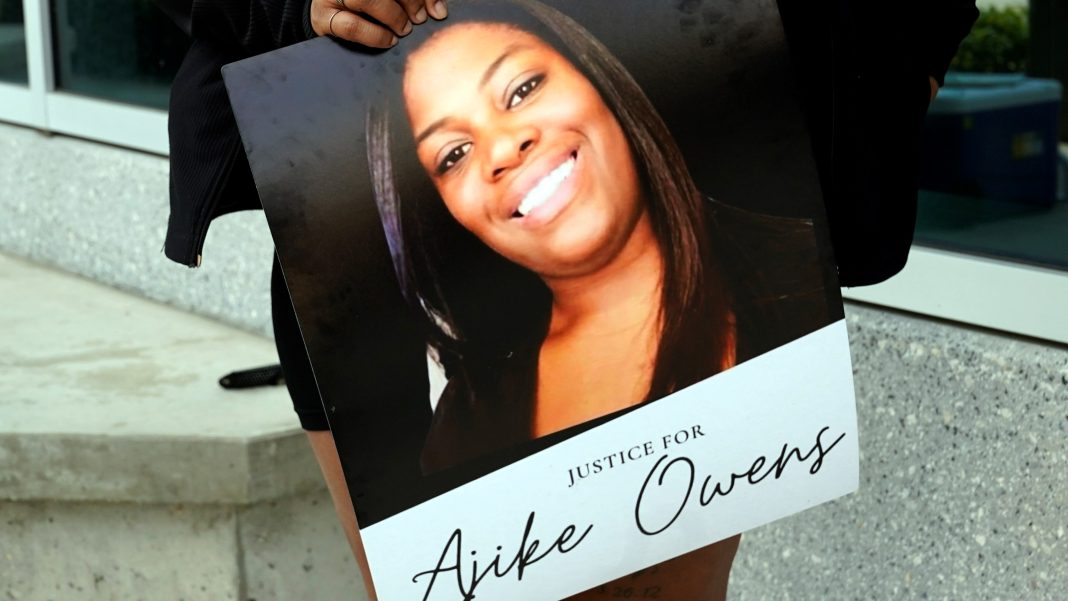Title: Fatal Shooting of Ajike Owens: A Case of Manslaughter and Questions of Self-Defense
Introduction:
In June 2023, Susan Lorincz, a white woman from Florida, fatally shot her neighbor Ajike Owens, a Black mother of four, through a closed door. The incident sparked national attention and led to Lorincz’s recent trial for first-degree felony manslaughter. This article delves into the details of the case, the trial proceedings, and the arguments presented by both the prosecution and the defense.
The Shooting and Trial:
The tragic incident occurred when Owens went to speak with Lorincz about a dispute concerning Owens’ children playing near Lorincz’s home. Lorincz shot Owens through a closed door in the presence of her 10-year-old son. Lorincz was subsequently arrested and charged with first-degree felony manslaughter.
During the trial, the prosecution argued that Lorincz should be found guilty because she shot an unarmed Owens through a locked door. The defense, however, contended that Lorincz acted in self-defense, fearing for her life. They highlighted Lorincz’s medical issues, prior run-ins with Owens, and her isolated living situation to support their claim.
The Jury and Diversity Concerns:
The composition of the jury became a point of contention. Owens’ family expressed disappointment with an all-white jury, emphasizing the importance of diverse representation. Attorney Ben Crump, representing the family, called for equal justice and the belief that jurors should administer justice regardless of race. This highlights a broader concern about the lack of diversity in American juries and the need for a justice system that works for everyone.
The Arguments and Evidence:
The prosecution argued that there was no imminent danger to Lorincz at the time of the shooting, as Owens was banging on the door but not actively trying to break in. State attorney Rich Buxman underscored the importance of the word “imminent” in self-defense laws, stating that deadly force was unnecessary in this situation.
Conversely, the defense emphasized that Lorincz had a reasonable fear for her life, considering her medical issues, previous encounters with Owens, and the claim that Owens threatened to kill her. They argued that the law required jurors to find Lorincz not guilty if there was reasonable doubt.
The Locked Door and Damages:
The state’s focus centered on the locked door and its condition. Witnesses, including sheriff’s deputies, testified that law enforcement had been on their way to Lorincz’s home in response to her 911 call reporting trespassing. The defense claimed that Owens intended to break into Lorincz’s home and that the door was damaged. However, testimony from Lorincz’s former landlord contradicted this, stating that the door was structurally sound after he repaired it.
Insights and Analysis:
It is crucial to examine the dynamics of the case and the arguments presented during the trial. The case highlights the complexities of self-defense laws and the need for a careful evaluation of imminent danger. The lack of diversity in juries also raises concerns about equal justice and representation.
Conclusion:
The trial of Susan Lorincz for the fatal shooting of Ajike Owens has shed light on the challenges of determining guilt and self-defense in cases involving lethal force. While the jury’s final decision will determine the outcome, the trial serves as a reminder of the importance of fair representation and the pursuit of justice for all.


